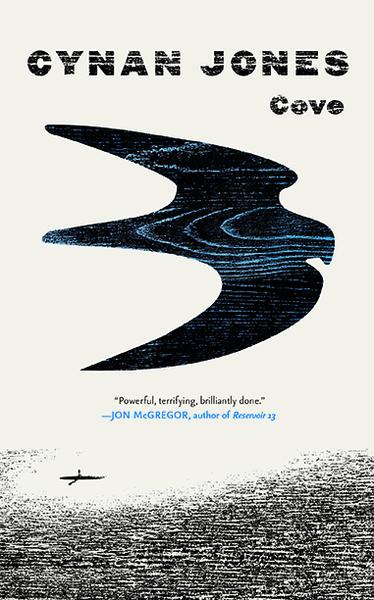
Cynan Jones’s books tend to rest on the intersection of the interior struggles of his characters and the exterior challenges the elements present. It is only through navigating the difficulties in the natural world that the characters are able to excavate the emotional dilemmas they’re unable to process—certainly, the elements, the land, and the creatures dying at the hands of the characters are symbolic of his characters’ moods, but there is always something else happening beyond Jones’s use of setting as a mood mirror, where it becomes as much a part of the characters’ revelations as are the actions that take place along the plot line. The characters are bound to the physical world as a means of survival—but even when they think they aren’t bound to the animal world, they find themselves struggling against it, or in some cases, struggling without it. They begin to rely on their instincts and it is only through this return to the primal self, that they can survive.
Jones’ latest book, Cove, is a short book of ninety-two pages. However, short as it may be, it provides a bit of rigor as it slips between linearity and non-linearity; moreover, it’s written in fragmented sections that often read a bit more like prose poetry than do Jones’s other books. As we’ve come to expect from Jones, the story begins in a mystery, a narrative fugue state, where Jones keeps the characters and the reader just inches away from the pieces they need to find purchase in a world that is constantly presenting them with foul and slippery moments of chance. If only the characters could locate themselves in the narrative, they could quite easily step away, find solutions, but this is not the luxury life affords them, and thus we must ride along with them as they assemble their reality. It sounds simple, indeed, but Jones always manages to keep the mystery fresh. After all, any lesson worth learning, is worth learning the hard way, and in Jones’s universe, this seems to be the only way.
In Cove, a man is stranded and badly wounded in kayak after being struck by lightning. His fugue state does not actually fully lift and so he must rely on those survival techniques that were ingrained in him through his experiences with his father. What’s fascinating about the way his memory works is that it’s like a whisper from an outside voice. He hears fragments in his head, and must deduce what he’s meant to do in order to survive.
The thing I enjoyed most about this book was Jones’ ability to carry sound through his lines. Because of the somewhat fragmented structure of the prose, this sonic thread really helps move the book along. One of the most beautiful paragraphs happens quite early in the text. Jones writes, “[t]he sand is wet, intimate. There is the faint sugary crunch, the smallest suction under your feet, the wash, the wish of the sea.” The S sound here shifts, ebbs and flows, and carries the eye quickly through the paragraph. The subject is, in fact, quite mundane—a character walking on sand. However, the word choice adds texture and music. It’s such a short paragraph, but wholly effective.
Cove is filled with paragraphs like this. Short bursts of musical energy that make this a delightful read. Where as his previous novels contain longer sentences and paragraphs detailing processes, Cove is sparse and somewhat breezy, and rightly so, as it’s a book about a man who has no memory of who he is, and is close to dying in the cove. The language, like the protagonist’s energy is limited and effective. Content and form tightly bound. It’s another side of Jones and it certainly excites me to see what will come next.
***
Cove
by Cynan Jones
Catapult; 92 p.
Follow Vol. 1 Brooklyn on Twitter, Facebook, and sign up for our mailing list.
